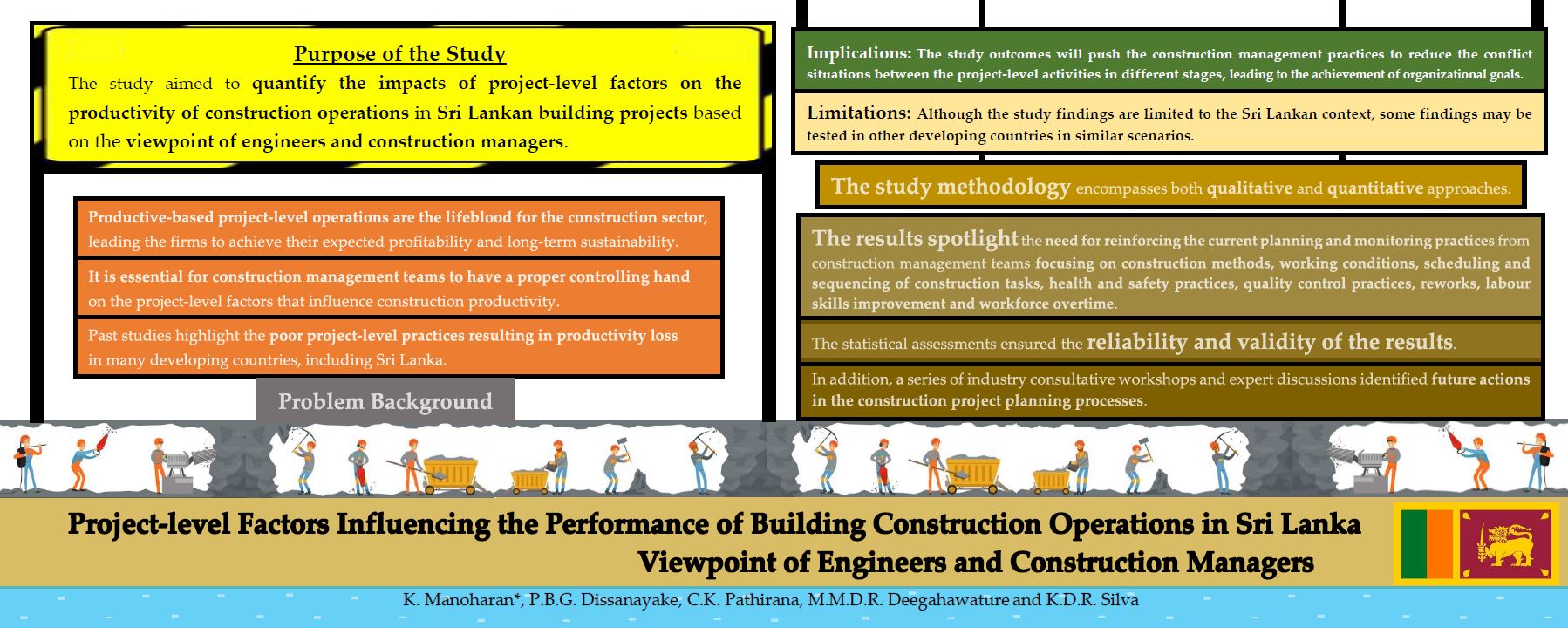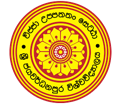Project-level Factors Influencing the Performance of Building Construction Operations in Sri Lanka: Viewpoint of Engineers and Construction Managers
DOI:
https://doi.org/10.31357/ait.v1i3.5294Keywords:
Building projects, Construction management, Productivity improvement, Sri LankaAbstract
Productive-based project-level operations are the lifeblood for the construction sector, leading the firms to achieve their expected profitability and long-term sustainability. Past studies highlight the poor project-level practices resulting in productivity loss in many developing countries, including Sri Lanka. It is essential for construction management teams to have a proper controlling hand on the project-level factors that influence construction productivity. The engineers and construction managers are the key decision-makers in construction project activities. This study aimed to quantify the impacts of project-level factors on the productivity of construction operations in Sri Lankan building projects based on the viewpoint of engineers and construction managers. Initially, the project-level factors were qualitatively identified through a comprehensive literature review. A questionnaire survey was carried out among engineers and construction managers from 90 leading Sri Lankan building construction contractors. The Relative Importance Index (RII) method was used to measure the impacts of the project-level factors on construction productivity. The results spotlight the need for reinforcing the current planning and monitoring practices from construction management teams focusing on construction methods, working conditions, scheduling and sequencing of construction tasks, health and safety practices, quality control practices, reworks, labour skills improvement and workforce overtime. The statistical assessments ensured the reliability and validity of the results. In addition, a series of industry consultative workshops and discussion sessions were conducted among construction experts through problem-based communication approaches to identify future actions in the construction project planning processes. These discussion outcomes also ensured the validity of the above results. The study outcomes will push the construction management practices to reduce the conflict situations between the project-level activities in different stages, leading to the achievement of organizational goals. Although the study findings are limited to the Sri Lankan context, some findings may be tested in other developing countries in similar scenarios.

Downloads
Published
How to Cite
License
Copyright (c) 2021 Mr. Kesavan Manoharan, Dr. P.B.G. Dissanayake, Dr. C.K. Pathirana, Prof. M.M.D.R. Deegahawature, Prof. K.D.R. Silva

This work is licensed under a Creative Commons Attribution-NonCommercial-NoDerivatives 4.0 International License.
The Authors hold the copyright of their manuscripts, and all articles are circulated under the terms of the Creative Commons Attribution License, which permits unrestricted use, distribution, and reproduction in any medium, as long as that the original work is properly cited.
The use of general descriptive names, trade names, trademarks, and so forth in this publication, even if not specifically identified, does not imply that these names are not protected by the relevant laws and regulations. The authors are responsible for securing any permissions needed for the reuse of copyrighted materials included in the manuscript.




